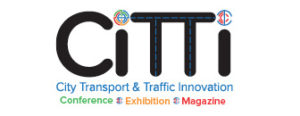John Lewis is aiming to reduce its carbon emissions in all areas, not just by converting to alternative fuels, Justin Laney of John Lewis Partnership said at the City Transport and Traffic Innovation Exhibition on Tuesday.
Laney, who is general manager – fleet at John Lewis Partnership, said the retailer is looking into reducing miles, reducing fuel burn per vehicle in addition to transiting away from diesel. The aim is to have a zero carbon fleet by 2045.
He gave an example of John Lewis working with Cambridge University to work on making its vehicles more aerodynamic. The collaboration helped achieve a seven per cent fuel saving.
 Laney explained that bio-methane conversions helps to achieve 83 per cent emission reduction, 35 per cent reduction in fuel costs and has half the noise of a diesel truck. He also added that drivers are very receptive to bio-methane vehicles.
Laney explained that bio-methane conversions helps to achieve 83 per cent emission reduction, 35 per cent reduction in fuel costs and has half the noise of a diesel truck. He also added that drivers are very receptive to bio-methane vehicles.
Currently, John Lewis has 60 dedicated bio-methane trucks and has plans for a further 200 by 2021. Bio-methane plays a key role in John Lewis’ strategy for achieving zero carbon by 2045 and Laney believe that it also plays an important role in freight transport beyond that.
Laney outlined potential challenges when it comes to converting to alternative fuels. He highlighted timing and infrastructure as the two main obstacles, explaining that the technology and infrastructure needs to align and pose a risk if they do not.
Contingency plans are also required, explained Laney. Back up plans are always required just in case. Likewise, safety measures need to be taken into consideration with the right people being trained to handle methane. Laney notes that this is not something we often realise as we are so used to dealing with the existing risks associated with diesel.
He pointed out sustainability issues associated with bio-methane use, too. This includes fuel sourcing, venting the methane in a way that is not harmful to the environment, vehicle life cycle, and looking to make last mile deliveries for efficient.
Likewise, financial obstacles include residual values and obsolescence as well as fuel prices, system costs (such as infrastructure) and skills.
Following on from alternative fuel technology, Laney believes that then next big change lies with autonomous vehicles.
The CiTTi Exhibition and Conference continues at the MK Arena in Milton Keynes today (19th June).






